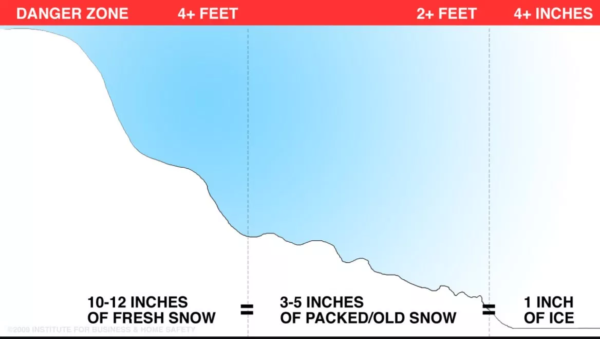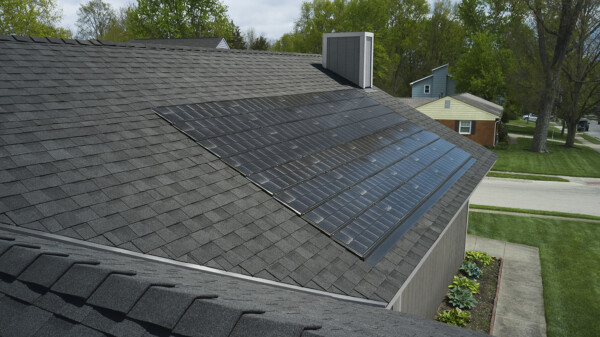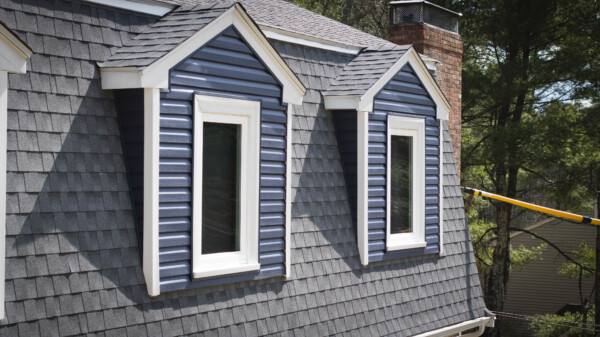Q: My roof is old and I am worried about the snow load on my roof. How much does snow weigh and how do I know if my roof can handle the weight?
A: Some of the smallest snowflakes are no larger than the diameter of a human hair. It’s hard to believe that something so small can weigh so much!
However, it’s true—snow is heavy and snow load on your roof can absolutely cause damage. Here’s what you need to know.
undefined
How Much Does Snow Weigh?
The weight of snow depends on the type of snow in question. To calculate the weight of snow, you take 7.48 gallons of per cubic foot of water, which is about 62.4 pounds. You then divide it by the amount of snow (in inches).
Light and fluffy snow weigh the least. If it snows 12” of light and fluffy snow, it will weigh about 5.2 pounds.
Unsurprisingly, wet snow is the heavy stuff. If it snows 5” of wet snow, it will weigh about 12.5 pounds.
With this information, you’re now likely wondering about the weight of snow load on your roof. There is a calculation for this, too!
Calculating Snow Load on Roof
Calculating snow load on your roof depends on two factors: whether it’s a flat roof or a pitched roof. The snow load will be different depending on the construction of your roof.
Measuring Snow Load for Flat Roofs
Even though we typically measure snowfall in inches or feet, you’ll want to think of it in terms of feet. The easiest way to measure snowfall on a flat roof is to take a yardstick and measure what looks like the average overall snowfall. If there is 18 inches of snow this is expressed as 1.5 feet.
You’ll then take the depth of snow in feet and multiply it by the weight of 1 cubic foot of snow. This is 6 to 8 pounds for fluffy snow and 20 pounds for wet snow. The same volume of ice can weigh 3 times the amount.
After you arrive at your answer, multiply it by the square footage of your home. This is how much snow load or pounds of pressure from snow is on your roof.
Measuring Snow Load for Pitched Roof
With a pitched roof, you’ll need to know how much snowfall is expected and determine the pitch of your roof. You’ll need to measure the rise and the run and divide the answer by the run, then convert it to a fraction ratio of 12.
From here, it’s best to use a snow load calculator such as this one from Cornell University.
With the weight of snow fresh in your mind, here’s how you can tell if your roof can handle the weight.
Source: https://courses.cit.cornell.edu/arch264/calculators/example2.3/index.html
Can my Roof Handle Heavy Snow?
Even if math isn’t your strong point, we can give you a general idea if your roof can handle a snowstorm or otherwise significant snowfall.

Image source: Insurance Institute for Business and Home Safety
According to the Insurance Institute for Business and Home Safety, most residential roofs are able to withstand a reasonably heavy snow load before becoming stressed. Once the snow load accumulates to 20-25 pounds per square foot, this becomes the danger zone.
When your roof becomes stressed due to the weight of snow, you might begin to notice:
- Noticeable bends or cracks in the attic.
- Damaged or splintering rafter beams.
- New cracks in drywall or plaster around door frames.
- Doors are suddenly sticking when they used to open with ease.
- Cracks and leaks in the ceiling.
- Sections of your roof are sagging.
The good news is that roof collapse typically doesn’t happen all at once. It’s a process of breaking down until your roof can no longer handle the weight.
However, if you suspect that your roof cannot handle significant snowfall, it’s important that you contact a roofing contractor in MA. A roofing contractor can help evaluate whether your roof is subject to collapse due to snowfall.
Book Your Roof Replacement Before the Spring Rush
If you are worried about the structure of your roof, it’s better to call Coastal Windows & Exteriors sooner than later. Spring appointments are already booking up and there’s still time to get ahead of the rush and take advantage of our winter promotion! Contact svanderbilt@mycoastalwindows.com to get started.




